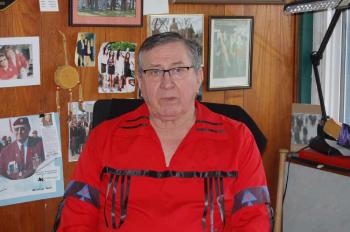Image Caption
By Shari Narine
Windspeaker Contributor
EDMONTON
“After decades of studies and recommendations and meetings and court orders, enough is enough,” said Alberta Children’s Services Minister Danielle Larivee.
Her comment follows a two-day emergency meeting held last week called by the federal government to discuss the state of Indigenous child welfare.
“All of this is wrong and we didn’t need another meeting to know that.”
Those are the same words Donald Langford, executive director with Métis Child and Family Services Society, in Edmonton throws back at Larivee as the second set of recommendations from the Child Intervention Panel, established by the provincial government, are about to come out.
No more recommendations are needed, he says, pointing to a list that has already come from an earlier child welfare intervention panel, and recent special reports from the Office of the Child and Youth Advocate and the Auditor General; the majority of which have been ignored.
“We have to see some real action,” said Langford.
Larivee spoke similar words on Friday.
“We came to this meeting looking for action, for firm commitment from the federal government to equitably fund on-reserve services and to new Indigenous-led approaches to the way services are delivered.”
Indigenous Services Canada Minister Jane Philpott committed her government to meet the orders from the Canadian Human Rights Tribunal, which directed the Liberals to fund on-reserve children’s services at the same rate as the provinces fund off-reserve children’s services. She also said additional investments will come in the 2018 budget, but offered no dollar figures.
Larivee said while she was “cautiously optimistic” that the funding the federal government is promising will make a difference, she committed Alberta would continue to play an active role like it has with additional funding for housing and safe water drinking systems on reserves.
“We are willing to step in with funding if the federal government doesn’t step up to the table because it’s just purely wrong,” she said, but didn’t offer any dollar figures either. She said costs will be dependent on community needs.
More funding isn’t the issue, said Langford.
“I think what they need to do is manage the money they’re getting right now better,” he said.
And there needs to be a change in attitude.
“There is really an underlying level of systemic racism here. Everybody thinks they know what we need to do to better our lot and they’re happy to do it for us and tell us how to do it but they don’t want us to be a part of it,” said Langford. “The community knows what to do but these people are deaf. They don’t listen to us.”
At last week’s federal emergency meeting, Philpott put forward six points of action her government had committed to, including supporting culturally-appropriate reform undertaken by Inuit and Métis organizations; shifting the program focus to prevention and early intervention; and exploring changes in the development of federal child welfare legislation.
However, none of the provinces or territories signed on to the federal government’s points of action.
“While I am broadly supportive of the statement as proposed and committed along with my counterparts to collaborative action, it would be wrong and frankly unhelpful to make statements that directly and strongly impact Indigenous communities in Alberta without ensuring meaningful engagement first,” said Larivee.
More meetings are “a waste of time,” said Langford.
The changes that are needed are already known, including downsizing middle management and hiring more frontline workers; developing relationships with Indigenous families and communities; and putting money that goes to foster families into the hands of the families of those children who are being apprehended so they can care for their own children.
“We’ve been promised change after change after change … for 20 years,” said Langford. “And you most likely detect my frustration because I’ve been around that long and they’ve done nothing to bring in the Indigenous communities.”
About 400 federal, provincial and territorial government officials and Indigenous leaders and representatives met in Ottawa Jan. 25 and Jan. 26.

